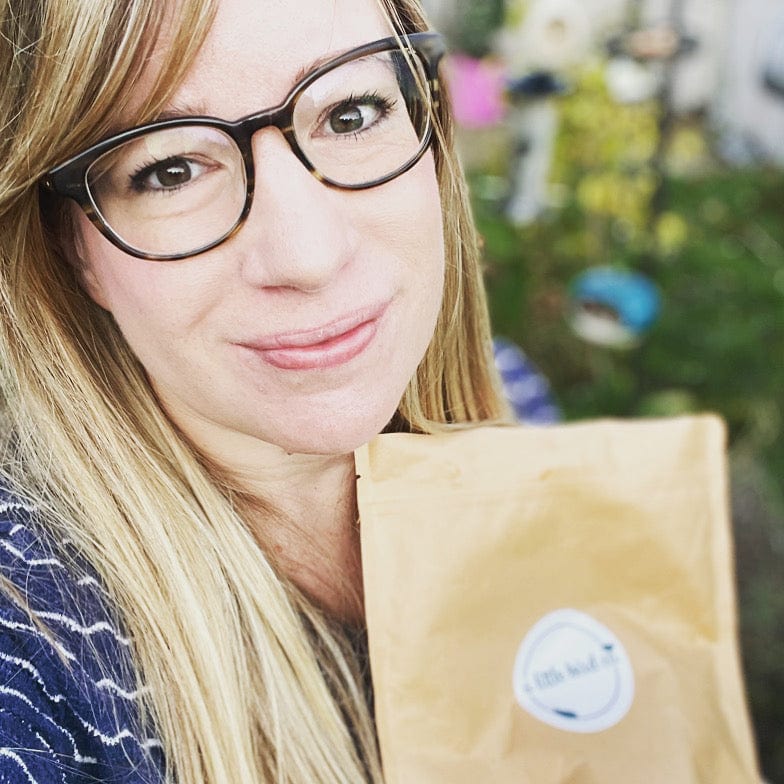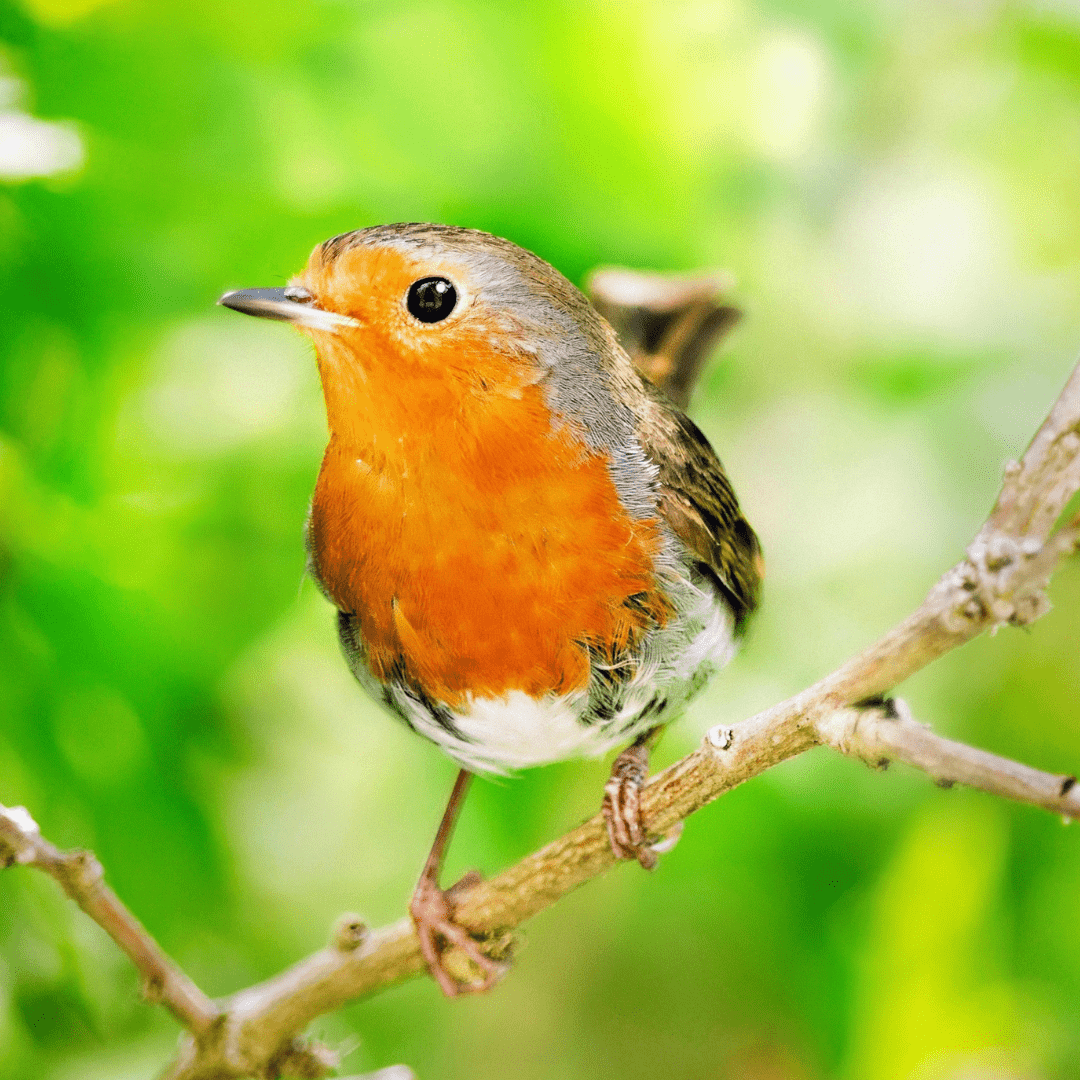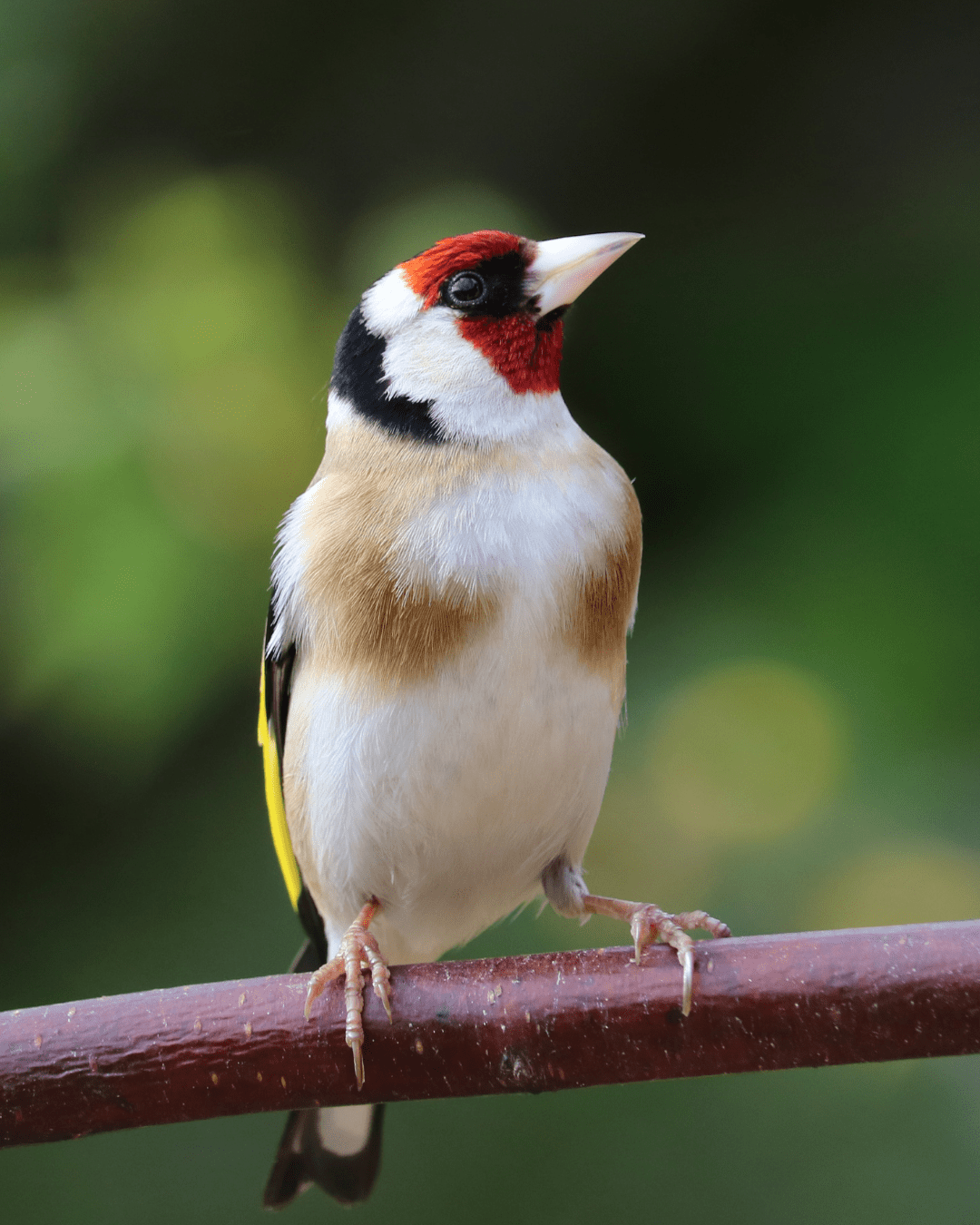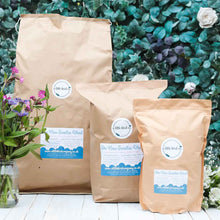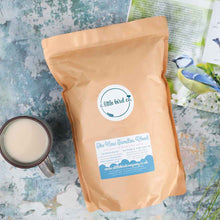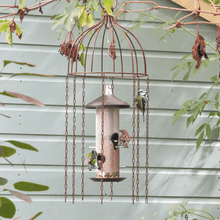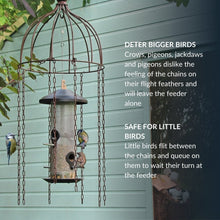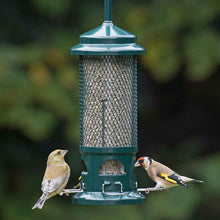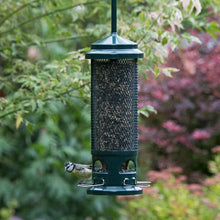How to stop pigeons (and parakeets) from eating all the bird food
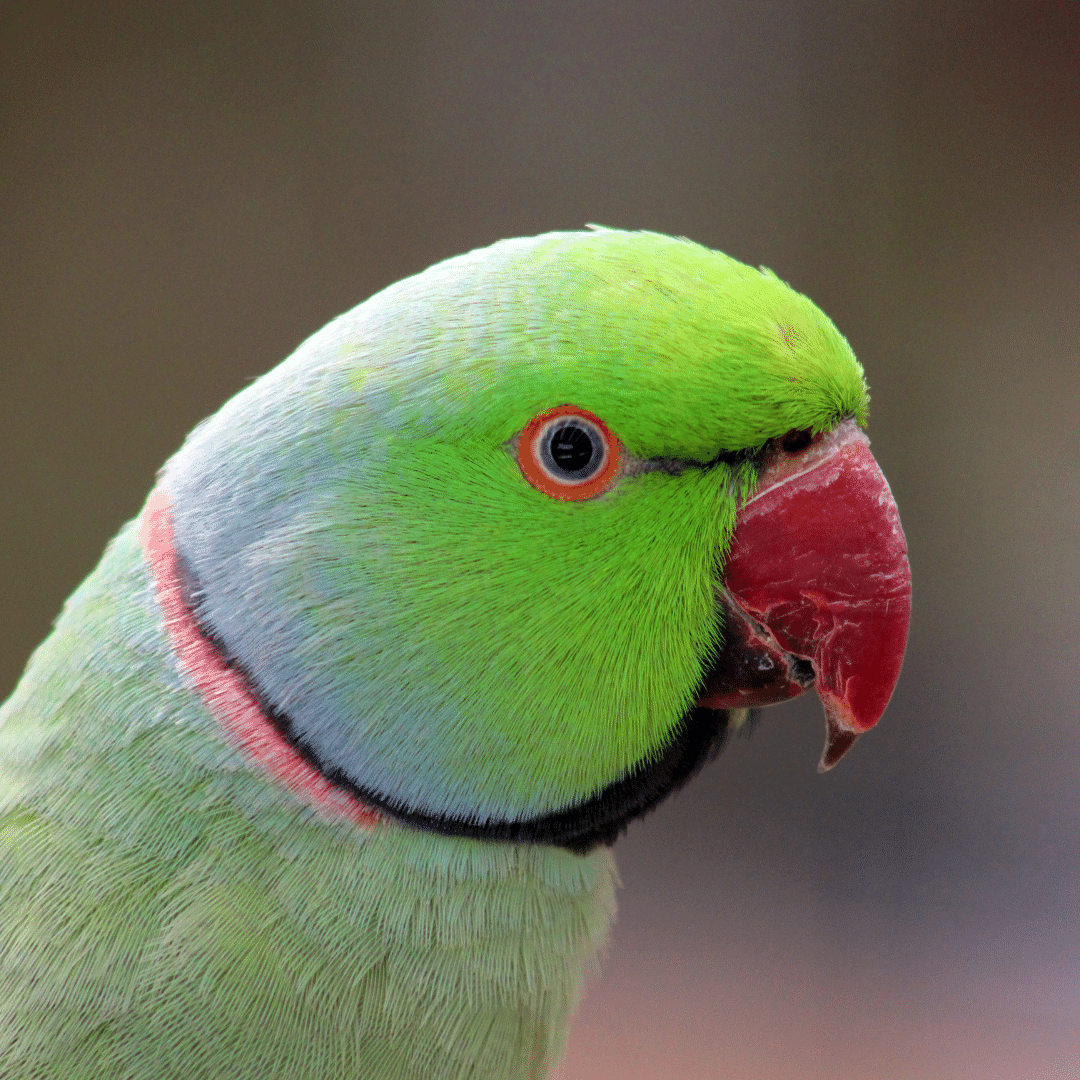
Although it may seem bizarre if you live further from London, we have feral parakeet populations (primarily rose-ringed parakeets) in urban and suburban gardens surrounding the capital. Native to parts of Africa and the Indian subcontinent, parakeets have been spotted from at least the mid-20th century and no one is entirely sure how they arrived. Some sources suggest that these birds may have been introduced as pets or escaped from captivity during and after World War II (one theory even suggests a pair escaped from the film set of the 1951 film “The African Queen”), and our relatively mild climate, the consistent food available in urban areas, the absence of natural predators and the birds’ adaptability have meant that parakeet populations have steadily increased. Also in the ‘bigger bird’ category are woodpigeons, collared doves, turtle doves, stock doves and rock doves (feral pigeons). Dove species and parakeets are experts at emptying a feeder and scaring away the smaller songbirds, but they do play ecological roles to that benefit our ecosystems, including seed dispersal, pollination, scavenging to prevent the buildup of waste and maintain hygiene and pigeons and doves also serve as a food source for various predators, including hawks and owls.
How to stop pigeons and parakeets from eating all the bird food
The Squirrel Buster and Starling-Proof Bird Feeder Guardian are both brilliant ways to deter pigeons and parakeets. Parakeets tend to either fly directly onto the Squirrel Buster, or attempt to climb onto it from above, and both methods result in the weight activated mechanism closing and denying them access to the food. The bars on the Starling Proof Feeder Guardian set are too close together to allow pigeons or parakeets access, and the tray at the base prevents dropped food from attracting them on the floor.
Pigeons and doves also won’t feed from the Medusa Feeder Defender, because they dislike the feeling on the chains on their flight feathers. I have also had success deterring parakeets using the Medusa, as have some customers, but they're so intelligent that I wouldn't like to promise they wouldn't find a way to climb down inside the hanging chains to eat.
We have a few free-access feeders in our garden, which the pigeons and parakeets enjoy using. Having one feeder just for the little birds has definitely changed the variety and number of small bird species we have visiting, though, which has been such a brilliant change to see. Do you have any other solutions to corvids in your garden? Send me a message to info@alittlebirdcompany.co.uk and share your tips!

